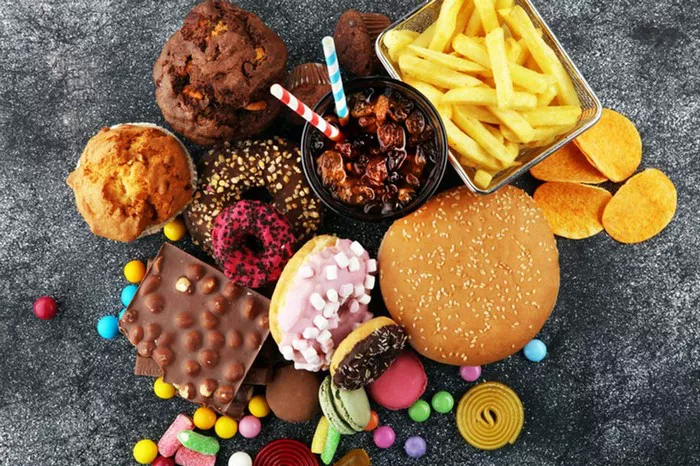High blood sugar, or hyperglycemia, poses significant health risks for individuals with diabetes. While managing blood sugar levels involves various factors such as medication, physical activity, and stress management, diet plays a crucial role. Certain foods can cause blood sugar levels to spike, exacerbating hyperglycemia and increasing the risk of complications. In this comprehensive article, we explore what not to eat if you have high blood sugar, empowering individuals with diabetes to make informed dietary choices and optimize their health outcomes.
Understanding the Impact of Diet on Blood Sugar:
Dietary choices directly influence blood sugar levels, as carbohydrates, fats, and proteins are metabolized differently in the body. Carbohydrates, in particular, have the most significant impact on blood sugar levels, as they are broken down into glucose during digestion. Individuals with diabetes must be mindful of their carbohydrate intake to prevent spikes in blood sugar and maintain glycemic control.
Foods to Avoid for High Blood Sugar:
- Sugary Beverages: Sugary drinks such as soda, fruit juice, sweetened tea, and energy drinks are high in rapidly absorbable sugars that can cause blood sugar levels to soar. Opt for water, herbal tea, or unsweetened beverages to stay hydrated without contributing to hyperglycemia.
- Processed Snacks: Processed snacks like chips, cookies, crackers, and candy often contain refined carbohydrates, added sugars, and unhealthy fats that can lead to sharp increases in blood sugar. Choose nutrient-dense snacks such as fresh fruit, vegetables with hummus, nuts, or Greek yogurt to satisfy cravings without spiking blood sugar levels.
- White Bread and Pasta: Refined grains like white bread, pasta, and rice have been stripped of their fiber and nutrients, causing them to be quickly digested and absorbed as glucose. Instead, opt for whole grains such as whole wheat bread, brown rice, quinoa, or barley, which provide fiber and help stabilize blood sugar levels.
- Sweetened Breakfast Cereals: Many breakfast cereals are loaded with added sugars and lack fiber, leading to rapid spikes in blood sugar levels. Choose low-sugar or unsweetened options such as oatmeal, bran flakes, or whole grain cereal with added nuts and seeds for sustained energy and stable blood sugar.
- Sweets and Desserts: Sweets and desserts like cake, cookies, ice cream, and pastries are high in sugar and refined carbohydrates, making them unsuitable choices for individuals with high blood sugar. Instead, satisfy your sweet tooth with naturally sweet options like fresh fruit, yogurt parfait, or homemade desserts sweetened with natural sweeteners like stevia or monk fruit.
- Fried Foods: Fried foods such as French fries, fried chicken, and potato chips are high in unhealthy fats and refined carbohydrates, which can contribute to insulin resistance and elevated blood sugar levels. Opt for baked, grilled, or steamed options to reduce the risk of blood sugar spikes and promote heart health.
- Alcohol: Alcohol can lower blood sugar levels initially but may cause a rebound effect, leading to subsequent spikes in blood sugar. Moreover, alcoholic beverages often contain added sugars and empty calories that can contribute to weight gain and insulin resistance. Limit alcohol consumption and choose lower-carbohydrate options such as light beer or dry wine in moderation.
- High-Sugar Condiments: Condiments such as ketchup, barbecue sauce, and sweet chili sauce are often high in added sugars, contributing to hidden sources of carbohydrates in meals. Opt for sugar-free or reduced-sugar versions of condiments or use alternatives like mustard, hot sauce, or vinegar to add flavor without added sugars.
Developing a Balanced Diet for Blood Sugar Management:
While certain foods should be avoided to manage high blood sugar, it’s essential to focus on a balanced diet that includes:
- Lean Proteins: Incorporate lean protein sources such as poultry, fish, tofu, legumes, and eggs into your meals to help stabilize blood sugar levels and promote satiety.
- Non-Starchy Vegetables: Fill your plate with non-starchy vegetables such as leafy greens, broccoli, cauliflower, peppers, and cucumbers, which are low in carbohydrates and rich in fiber, vitamins, and minerals.
- Healthy Fats: Include healthy fats such as avocados, nuts, seeds, olive oil, and fatty fish in your diet to support heart health and provide sustained energy without spiking blood sugar.
- Whole Grains: Choose whole grains such as brown rice, quinoa, barley, oats, and whole wheat bread, which are rich in fiber and nutrients and help regulate blood sugar levels.
- Portion Control: Practice portion control and mindful eating to prevent overeating and stabilize blood sugar levels throughout the day.
Conclusion:
In conclusion, managing high blood sugar levels requires careful attention to dietary choices to prevent spikes in blood glucose and promote overall health. By avoiding sugary beverages, processed snacks, refined grains, sweets, fried foods, alcohol, and high-sugar condiments, individuals with diabetes can better regulate their blood sugar levels and reduce the risk of complications. Instead, focus on a balanced diet rich in lean proteins, non-starchy vegetables, healthy fats, and whole grains to support glycemic control and optimize overall well-being. With mindful eating habits and informed dietary choices, individuals with high blood sugar can take control of their health and improve their quality of life.

























